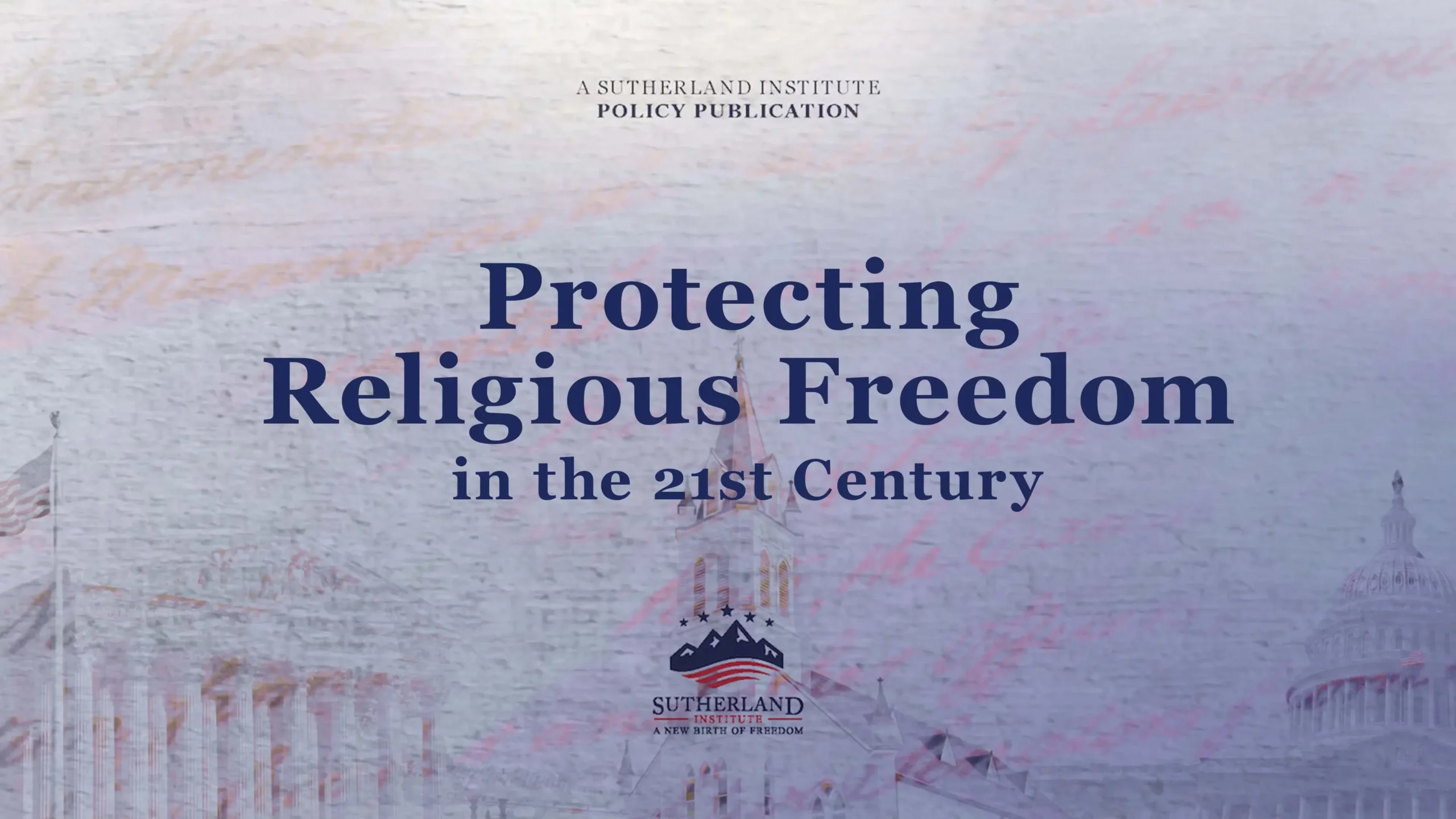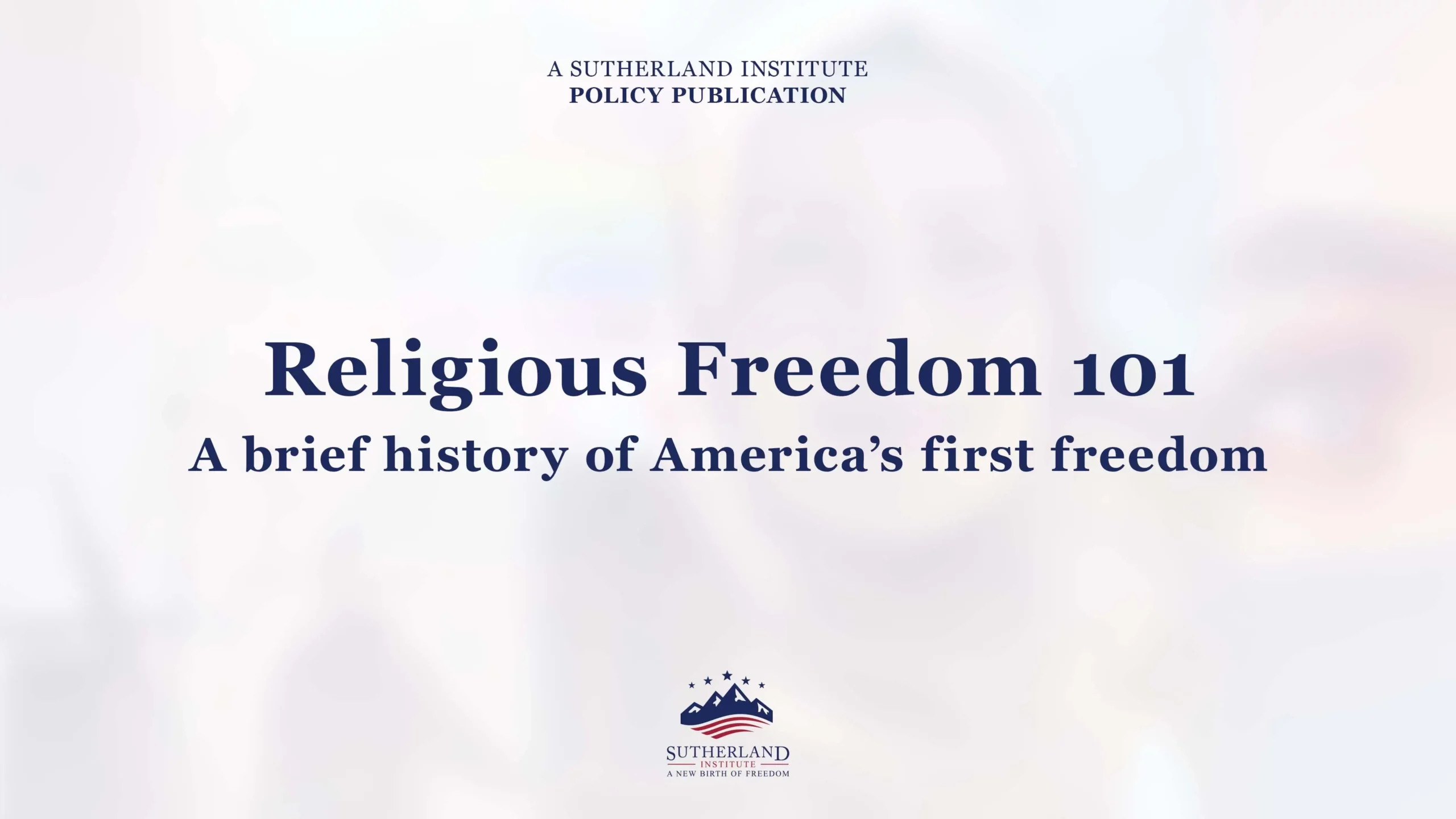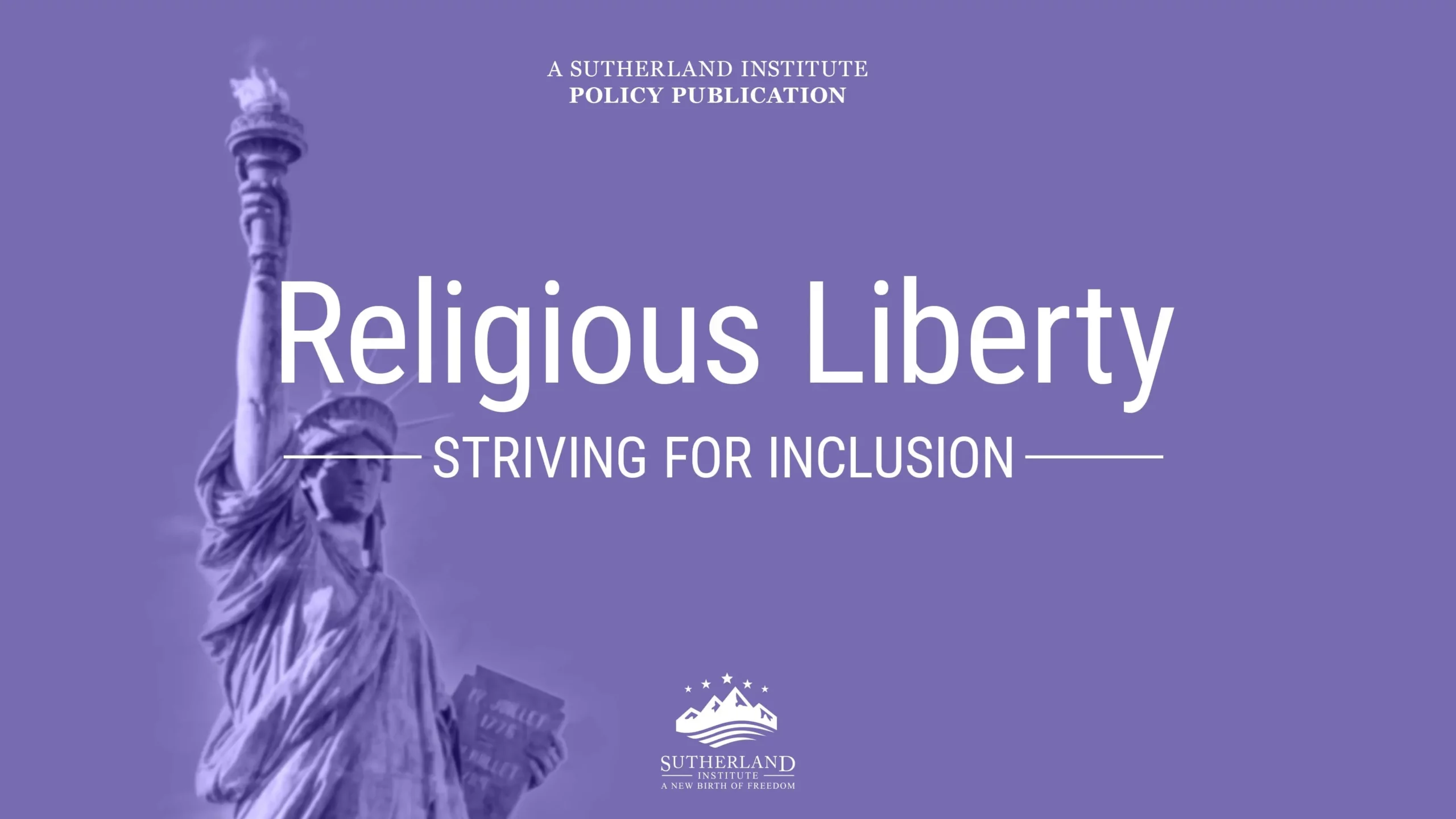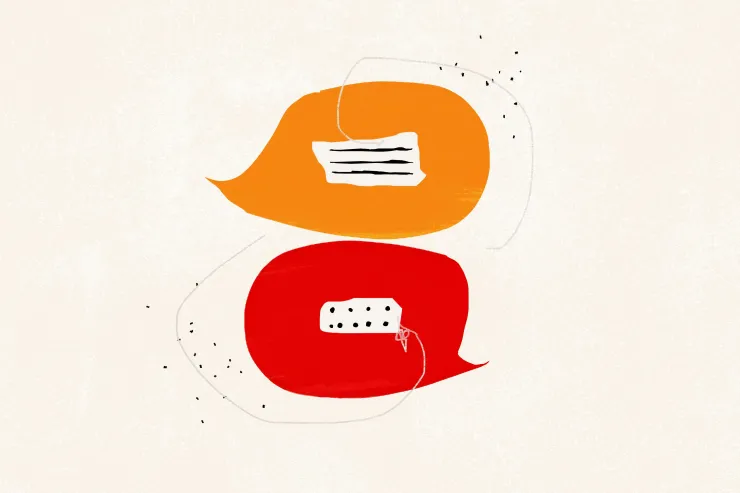Policy
Religious Freedom
Respecting human dignity requires that we respect the core elements of how people and groups identify themselves, including their religious beliefs. Religious belief has been a powerful motivation for protecting the rights and liberties of others; it kindled movements to abolish slavery and protect Americans’ civil rights. For millions of Americans, religion is the source of the values required in a free society, such as understanding, respect and sacrifice for others. Additionally, religious institutions provide irreplaceable care for the most vulnerable people in society.
For all of these reasons, the right to exercise religion is a fundamental human right. The law should respect the independence of religious institutions, defend the right of conscience, and protect the right of individuals to act on their religious beliefs, while establishing reasonable protections for public health and safety in a spirit of fairness for all.
Religious Freedom
Respecting human dignity requires that we respect the core elements of how people and groups identify themselves, including their religious beliefs. Religious belief has been a powerful motivation for protecting the rights and liberties of others; it kindled movements to abolish slavery and protect Americans’ civil rights. For millions of Americans, religion is the source of the values required in a free society, such as understanding, respect and sacrifice for others. Additionally, religious institutions provide irreplaceable care for the most vulnerable people in society.
For all of these reasons, the right to exercise religion is a fundamental human right. The law should respect the independence of religious institutions, defend the right of conscience, and protect the right of individuals to act on their religious beliefs, while establishing reasonable protections for public health and safety in a spirit of fairness for all.
Published Research
Conversations
Opt-ins and opt-outs in education #utpol #education
How the Mahmoud v. Taylor SCOTUS case will impact parents and schools #utpol #education #scotus
Mahmoud v. Taylor – Part 3: What Should Happen
Mahmoud v. Taylor – Part 2: The Arguments
Mahmoud v. Taylor – Part 1: Case Overview
Proactively protecting religious freedom #utpol #religiousfreedom
Religion as a force for good
America's example of religious freedom #utpol #religiousfreedom
Opt-ins and opt-outs in education #utpol #education
How the Mahmoud v. Taylor SCOTUS case will impact parents and schools #utpol #education #scotus
Insights & Takeaways
Religious liberty conferences highlight the freedom that many lack around the world
In Rome, Justice Samuel Alito says: “We can’t lightly assume that the religious liberty enjoyed today in the United States, in Europe, and in many other places will always endure. Religious liberty is fragile.”
Coach case showcases different approaches within the Supreme Court
The majority focused on the very specific facts of the case, while the dissent was concerned with issues that could occur if the coach prayed on the field.
The coach who prayed: Supreme Court upholds religious practice
The case involved a high school football coach, Joseph Kennedy, who had participated in a personal prayer on the football field after games.
Are Supreme Court rulings the best way to advance religious freedom rights?
The First Amendment – like the Constitution itself – would not exist except for the legislative negotiation and compromise that made it happen.
Ruling in Maine school case highlights interplay of religion clauses in the First Amendment
In tuition grant case, Supreme Court says state can’t exclude families using church-affiliated schools “from otherwise available public benefits.”
Sutherland Institute statement on Supreme Court decision in Dobbs v. Jackson Women’s Health Center
SALT LAKE CITY June 24, 2022—Today the United States Supreme Court issued a long-awaited ruling in the controversial case of Dobbs v. Jackson Women’s Health Center. Sutherland Institute believes this unprecedented moment – a court ruling previously leaked while in...
Changing the narrative on religion and the LGBTQ community
Church members of all stripes should feel comfortable engaging in conversations about faith with their LGBTQ brothers and sisters.
Supreme Court clarifies religious practice rights in 2 cases
The decisions involve the Civil Rights Act and free speech rights.
Why did Supreme Court decline Colorado religious school case?
A couple of possibilities: It agrees with lower courts that a trial is needed, or it seeks to ensure consistency and rule of law.

















